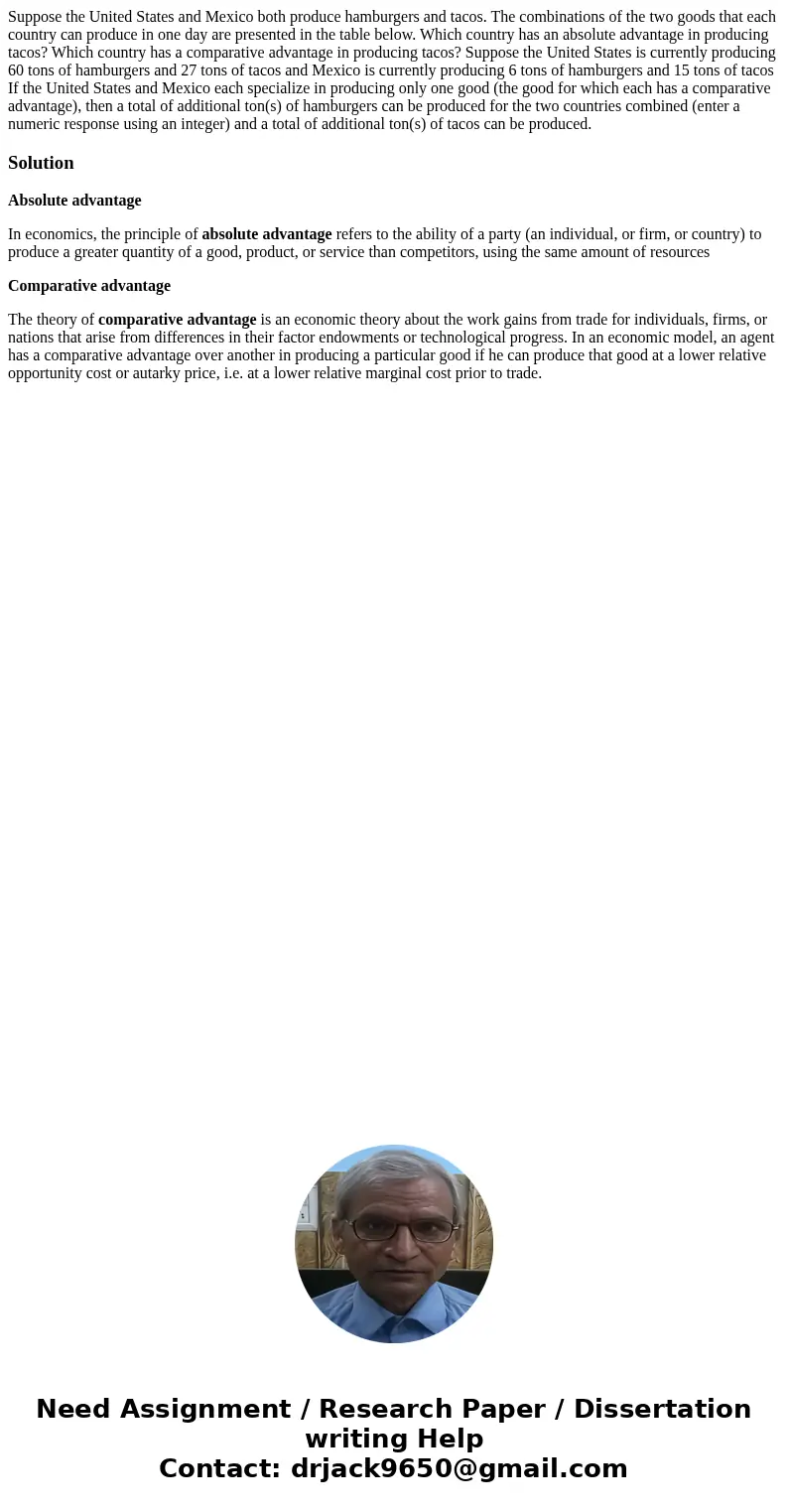Suppose the United States and Mexico both produce hamburgers
Suppose the United States and Mexico both produce hamburgers and tacos. The combinations of the two goods that each country can produce in one day are presented in the table below. Which country has an absolute advantage in producing tacos? Which country has a comparative advantage in producing tacos? Suppose the United States is currently producing 60 tons of hamburgers and 27 tons of tacos and Mexico is currently producing 6 tons of hamburgers and 15 tons of tacos If the United States and Mexico each specialize in producing only one good (the good for which each has a comparative advantage), then a total of additional ton(s) of hamburgers can be produced for the two countries combined (enter a numeric response using an integer) and a total of additional ton(s) of tacos can be produced.
Solution
Absolute advantage
In economics, the principle of absolute advantage refers to the ability of a party (an individual, or firm, or country) to produce a greater quantity of a good, product, or service than competitors, using the same amount of resources
Comparative advantage
The theory of comparative advantage is an economic theory about the work gains from trade for individuals, firms, or nations that arise from differences in their factor endowments or technological progress. In an economic model, an agent has a comparative advantage over another in producing a particular good if he can produce that good at a lower relative opportunity cost or autarky price, i.e. at a lower relative marginal cost prior to trade.

 Homework Sourse
Homework Sourse